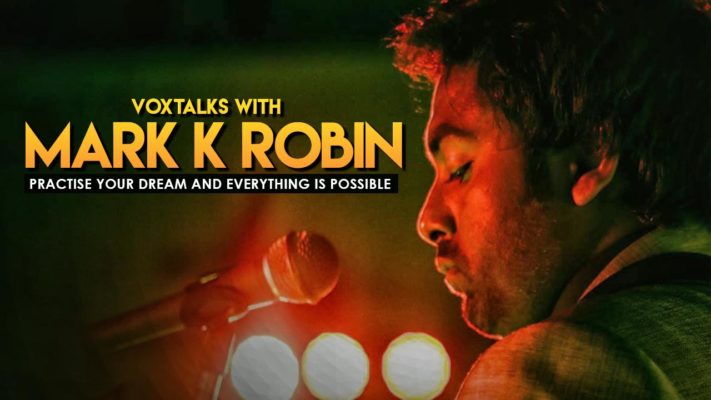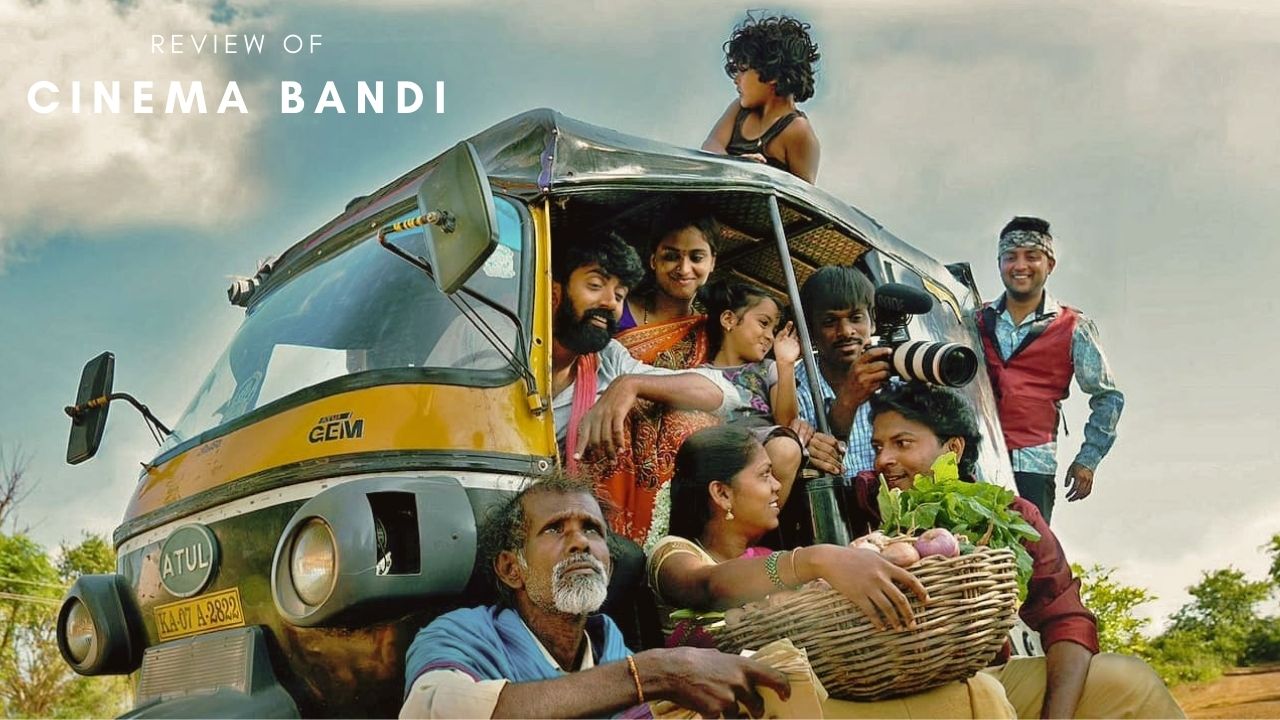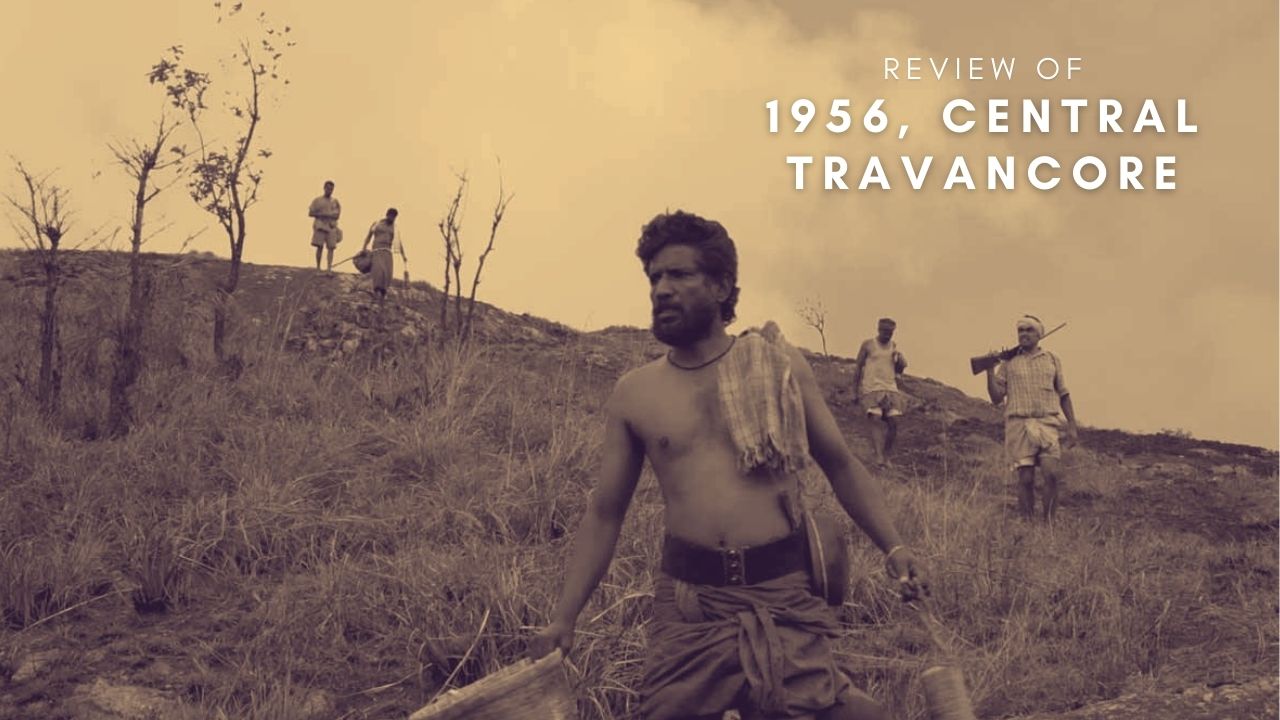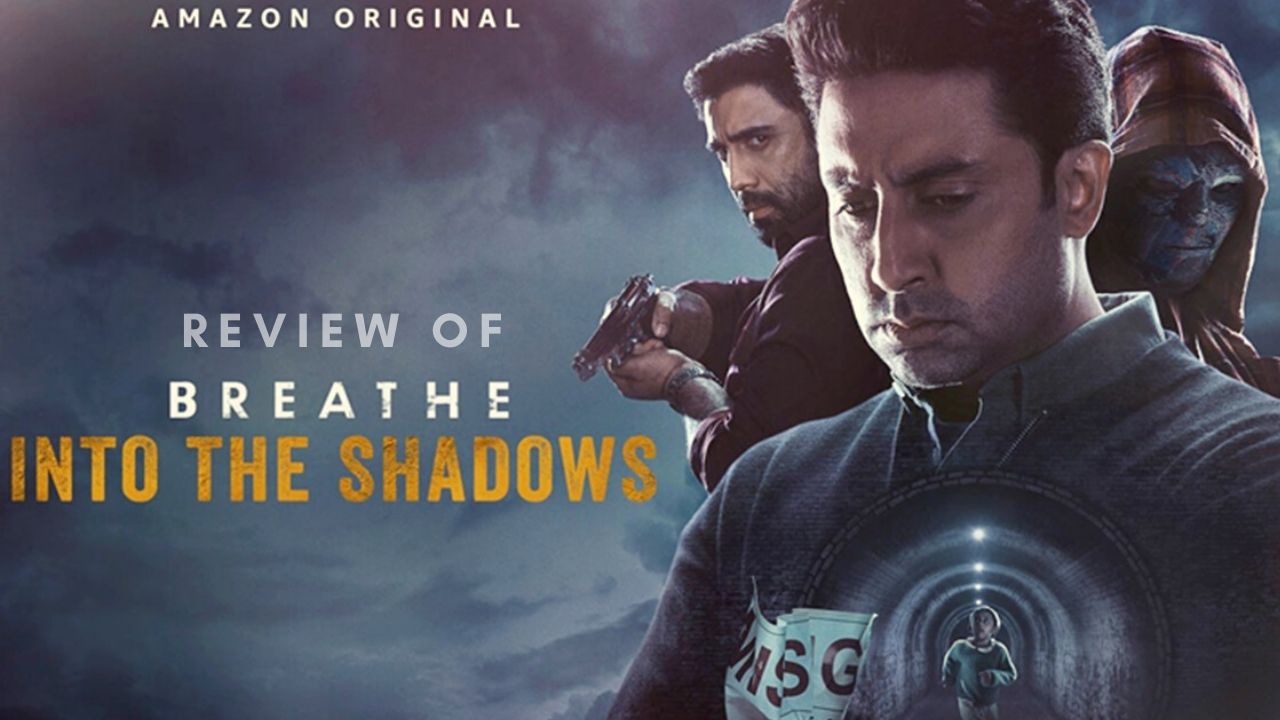
The current Telugu Film Industry is having a great wave with a fresh bunch of new and young talents. And these talents aren’t coming from some magic land, they are our very own people in and around us. One such boy from mana Hyderabad is Mark K Robins. The city boy earlier composed music for several award-winning short films like Bandham Regad, Dialogue in the Dark, and Dily Bily for which he also won various awards. Things changed after his meet with Nani and the Mark that only a few knew till then, is now one of the most promising and rising music composer in this beautiful phase that’s happening to Telugu cinema. We at VoxSpace happened to talk to him where he spoke about his perspective about music composition, his dreams and passion to pursue them.
Hey Mark, I’m pretty sure people would have made their own assumptions once they heard your name. So, what’s the story of Mark K Robins?
I am a pakka Hyderabadi, born and brought up in Musheerabad. While growing up, we had formed a Gospel band called ‘Extol’ and as a band, we would have long practice sessions in the church itself. We used to play live gigs at Church and get good appreciation. From there on, my people encouraged me to start scoring BGM for independent movies and slowly feature movies. I began with a few good short independent films (he won the Best Music Award at the 5th Noida International Film Festival, 2018) and during those times, while Nani was looking for a music composer to score for his trailer of Majnu, that’s when Prashanth Verma got me connected and Nani was pretty impressed with my score for the trailer. Nani promised that we both would work sometime together and after a year or so, I landed my first opportunity with ‘Awe!’. That’s where it began.
Awesome! And yes, we have been hearing your name from the short films, Bandham Regad, Dialogue in the Dark and so on. Now that you have finally made it into feature films, what’s the challenge you face when compared to working on feature films as supposed to short independent films?
To be frank, I’d say working on short films was tough. Instead, feature films are more comfortable for me. Let me tell you why – when it comes to short films, whatever parallel musical screenplay that I wanted to convey which usually happens across 2 hours is now reduced into 20 or 30 mins. Therefore, the musical screenplay I want to convey gets a little muddled up and it gets tough to convey through music in short format of films.
And congrats on those short film awards at SIIMA and Noida International Film Festival. Now, I can’t hold myself back without asking about the album of Mallesham, especially the song ‘Oho Jambiya’. Could you tell us more about this album?
Firstly, when Raj narrated the story to me, that moment itself I was blown away. It’s not a commercial film nor an art film, it’s a real story taking place in natural surroundings. No big sets and stuff. So, my music was also supposed to be very real and natural. That was the first thought I had about the music for Mallesham. I took a proper time of 3 months and worked to tweak every song. Initially ‘Oho Jambiya’ was not planned in the album. It was during the shoot of the movie, in that particular village, Peerla Pandaga was taking place. Raj and the whole team were quite excited to include this traditional festival in the movie. He immediately sent me a few links and got me to re-arrange for the song, ‘Oho Jambiya.’ It’s quite a famous song at the Peerla Pandaga. We just took the existing tune and re-arranged it. Rahul Sipligunj excelled in it and so did Goreti Venkanna. He was just singing at the table, we randomly got to record it and finally included his version as well. All of this came in very organically. ‘Naaku Nuvvani’ has a vintage 80s touch to it and towards the end, I added some jazz. That way, we could keep it still fresh. Every song of the album was a pleasure to work on. The composition was not an issue, but arranging the music was challenging. Thankfully, everyone liked it.
Yes, totally! We loved it. We also heard another recent composition in AgentSSA, the theme song. It was claimed as the first ever big band jazz composition. Could you explain to us a bit about that? What’s it exactly?
So, the moment I heard the story from Swaroop, it’s screenplay, the colour patterns, the look and feel of the movie, the first genre that clicked to my mind was jazz. I watched Whiplash more than 100 times and it inspired me a lot. I wanted to try many experiments with jazz and initially, I was a bit scared if at all the director and producers would agree to my idea of jazz in our theme. But, once I gave them a few samples and explained to them, they gave me complete freedom and that’s how I could compose for Agent Athreya. So, the song is a collaboration of some of the best jazz genre specific musicians across the nation. For my films, I am a single artist playing everything. I sit with the directors and play everything for them. Arranging music is a tough job in my case. We all, in some format, get to hear Latin, hip-hop, reggae and so on. But, getting to hear traditional jazz is tough. And in order to get that, we needed to arrange for traditional jazz musicians. We had one of the best jazz musicians work for this album. Finding the right ones is a must if you want the music to flow organically. The entire BGM for Agent Athreya was recorded live. If you observe, we almost have about 12 themes to the movie. Technically, the movie is very strong in terms of music. Thanks to the inputs and screenplay by Swaroop and Naveen Polishetty. Like using an anamorphic lens to give the vintage feel and working on other such small details gave me more energy to do justice to my job. And that’s why jazz was the best suitable genre for this particular film. Even after composing the theme song, I was delighted when the director and producer gave me a tight hug.
How did you manage to compose for such two contrast albums?
I don’t know how I did it, but I’m happy I did it. All those few months while working on these two projects… maybe for some three months, I slept for only 2-3 hours daily. The morning I would sit with Mallesham and Swaroop would wait for me by evening. Once I got done with Mallesham, I’d say Swaroop to put an alarm for an hour or so, take rest and start all over again. I would seriously think like an Agent in the night and sit on the music. For me, I go into the head of that particular character and situation while composing the music. I start to think and behave like that person. I really like going in depth to bring out the authenticity in my music.
Interesting! That’s something like ‘Method Music Composing’ (laughs). So, tell us this… How different is it to score the BGM when the movie follows dubbing vs sync sound?
Dubbing has some loudness involved whereas sync sound is more natural and has the subtlety to it. While working on dubbing, I have to look at the overall feel of it and give the ambience however I want it to be. But, when it comes to sync sound, the design is more technical. I cannot overlap the natural sounds that are already a part of the story-telling. So, I have to be a little more cautious while scoring BGM with sync sound. As a music composer, one needs to possess even the technical knowledge of his/her respective craft in order to contribute in the most authentic way.
What’s the biggest and most cherished compliment you have received so far?
I’d like to say one thing here. Yes, many people have complimented and have said great words to me. But I just don’t want to take those. I tell myself not to get carried away with them. I’d rather look out for feedbacks because if someone doesn’t like something, there will definitely be a reason for it. I’d like to work on that feedback and better myself. That’s it I guess.
Now that talent is growing across boundaries, can we expect you to come up with independent albums or will you restrict yourself only to films?
To me, film scoring is something that’s been my core fantasy and that’s what I love doing over independent songs. Yes, I do listen and hopefully, someday I will be in a position to come up with independent music. But, for now, I am more of a film music composer. I want to contribute with my bit of authentic traditional music to the industry.
Given a situation, what’s the process you undertake to compose a song? How does it flow – from the lyrics to tune or vice-versa?
Strangely for me, it works both the ways. Off-late in the last 2 years or so, mostly the tune gets ready and is sent to the lyricist to come up with the lyrics. But I’ve worked the other way around as well. So, it works either ways and I think I’m okay with both.
Is there any dream project or album that you want to work on or create?
I believe, a person should have a dream and learn to practice that dream. But then I think I have no limitations to those dreams. Maybe if I work with Christopher Nolan, I would stop dreaming. But till then there are so many things we all want to do. I have a great vision and I dream about it regularly, but most importantly, I practice my dream. That’s the only way out there.
Great! So, how did you handle the failures or rejections that came your way in this process of becoming a music composer?
Failures started right from my childhood. I was very poor at studies. In fact, I would be scolded for being fit for nothing. I couldn’t go to college. Failures kept happening. All that got me interested was electronics. So, I would go to Koti and buy books on electronics and gradually that’s where I gained all the technical knowledge on my instruments and sound. Like I would dig into the kind of magnet in an instrument, as different kinds of magnets produce different kinds of sounds. And I think, knowledge over those basics made me build myself and rise from failures.
Even then, for over 3 years, I went through a bad phase, where people would take my work, but not pay. Some would work for a while and get away with someone else. I only had my bedroom as my studio with all the equipment on one side and a sofa to sleep on the other side. That was it. All the mental support I got is from my father. Ever since my mom passed away in 2011, he has been the biggest strength in my life. It only made me stay patient and persistent to realize my dreams. And most importantly it strengthened my ‘will power.’ I was not facing failures because of my bad composition, but the other aspects apart from my music. So, something kept pushing me from inside. And now I feel, if there were no failures, how will we ever look for success? They drive us towards success.
Both the directors of Mallesham and Agent Athreya, they mentioned that even if the film doesn’t work in the worst case, our relationship in trying to give our best will always stay. Today it worked and it only inspires us to do better.
Finally, any tips or suggestions that you’d like the upcoming musicians to adhere to?
Hahaha… What tips can I give? Guess I’m still one among them. But, since I have started to see the brighter side of it, maybe I can tell my experience. Before ‘Awe!’, my room was very small and I had no money to even buy any great equipment. As I said, I didn’t have a studio then also. All that I had was my bedroom studio and that’s from where I even composed music for ‘Awe!’
It has completely changed now. I did dream of this day very much. And I’m happy that it’s happening. All I can say is believe in yourself, have the will power, practice your dream and your dream will definitely come true. No matter where you belong in society, you have every right to realize your dream. And you can do it.
That’s inspiring! Well said, Mark! It was great talking to you. Wish you all the luck and more power to you, brother!














